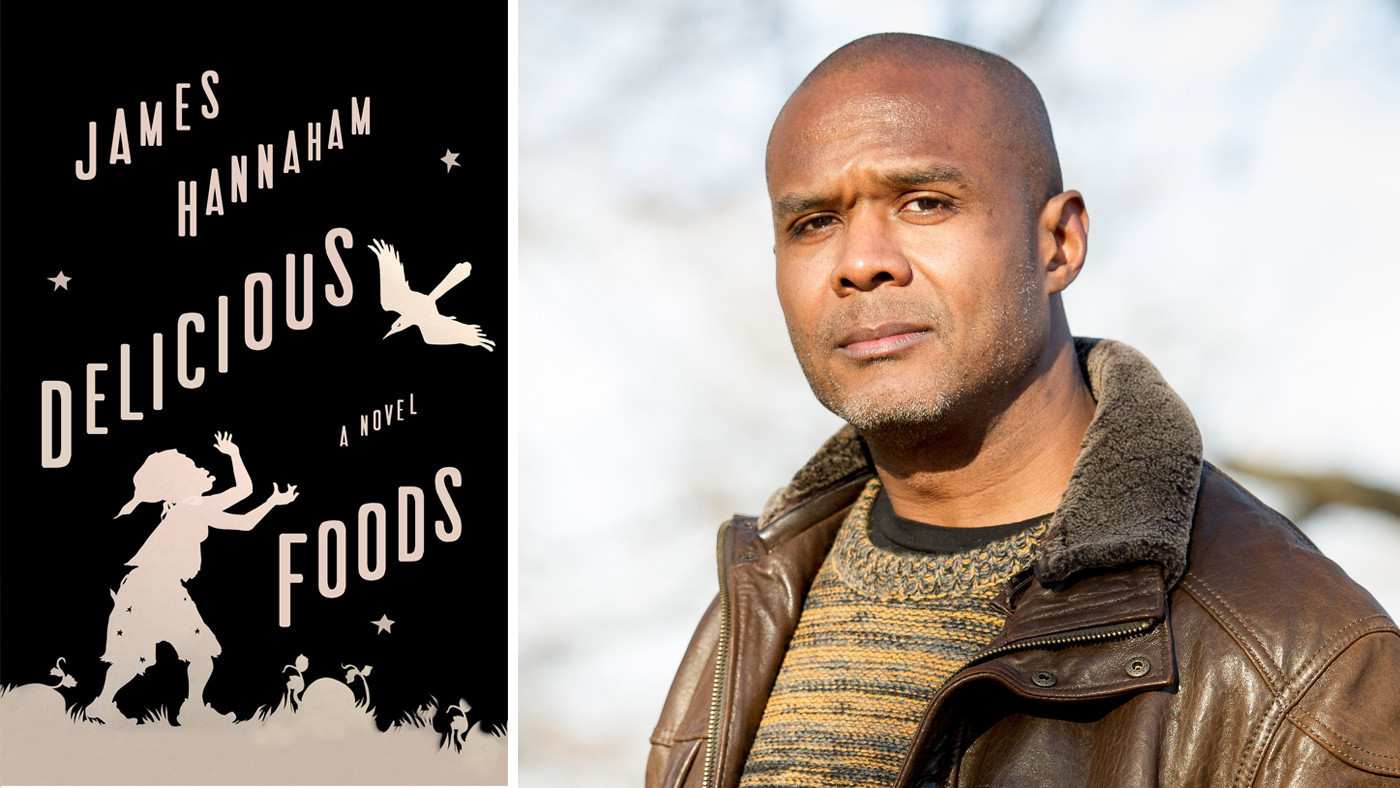by Charles Ellenbogen
Eddie has just escaped from the farm; Eddie also has no hands.
Those are among the first two things we learn in James Hannaham’s outstanding, tense and underappreciated novel, Delicious Foods (underappreciated despite winning the 2015 PEN/Faulker Award). Having established that frame, Hannaham recounts the events that led to that point using the voices of three narrators: Eddie, his mother Darlene and Scotty. I am going to avoid explaining who Scotty is.
It suffices to say that Hannaham takes a risk here that in other hands might have come across as a gimmick; here, it works. Darlene, having lost her husband Nat to a brutal act of racist violence (an act for which Darlene blames herself), spirals downward and severs the relationship with her son.
Darlene’s obsession with the loss of her husband and her role in it is not the only kind of enslavement in this story. She becomes, by all accounts, a pretty unsuccessful prostitute and falls under the spell of a self-help book. This allows her to be seduced by representatives from Delicious Foods, who promise her excellent accommodations and wages in exchange for her work on their farm. We are not fooled; Darlene, without telling Eddie, is. As soon as she arrives, she finds herself in another kind of slavery, one akin to the logistics of sharecropping. She doesn’t know where she’s been taken. That’s part of how the company controls her. Her accommodations are far from luxurious and her wages are abysmal. In fact, by the time she wakes up the next morning, she already owes the company money. And she can’t make the phone call to her son to tell him where she is.
And Eddie wants to know. Despite all of her frustrations with her, Eddie loves his mother. Hannaham explains in this elegant passage:
He remembered eating a certain brand of chocolate sandwich cookie that matched her complexion, not the deep brown of stained wood but lighter and ruddier, like cedar-bark chips. She had grace, and painted her finger and toenails a respectable shade of plum. A night sky of faint dots spread across her face. . . He remembered sitting in her lap and tracing these constellations. . .
After wandering among the people of the night, Eddie finds the same representatives from Delicious Foods and is reunited with his mother. The problem becomes that he, too, cannot leave the farm. And his mother doesn’t always want to.
In addition to taking us back to both the slavery and sharecropping eras, Hannaham’s descriptions of life on the farm resonates with the conditions that farmworkers face today. Some of the farmworkers dream about the plates and mouths where the food they pick will end up. How often, Hannaham seems to be asking, do we really acknowledge the labor that brings us our food? Where have you gone, Cesar Chavez?
Darlene gets increasingly drawn into life of the farm. Eddie, despite finding himself favored by the farm’s owner and therefore a prime candidate for an overseer position, becomes increasingly desperate to escape. And while his desperation does lead to his escape, it also explains – in a prolonged scene that is both horrible and true – why, when we first meet him, he is driving with no hands.
In what I first thought was a mistake, the story does not end there. Both Darlene and Eddie have to continue living and find a way back to each other. Like the readers, they are haunted by their experiences with Delicious Foods. Like the readers, they know their lives will never be the same. Life will not suddenly be easy. Hannaham – who lives in Brooklyn, N.Y. and teaches at Pratt Institute – does not let them, or us, off of the hook.
Delicious Foods, like Emma Donoghue’s Room, demonstrates the incredible power of the love between a parent and child while they are both ensnared in very dismal circumstances. But in the end, there is hope. Hannaham writes of Eddie: “He had to survive. He had to live. He was free.”
Hannaham – who earned his MFA at the University of Texas at Austin – has written a new kind of Southern Gothic. Flannery O’Connor would be proud. Thanks to Hannaham’s understated prose, the power of the novel sneaks up on you. And it does not go away.
Charles Ellenbogen teaches English at John F. Kennedy – Eagle Academy in the Cleveland Metropolitan School District.


